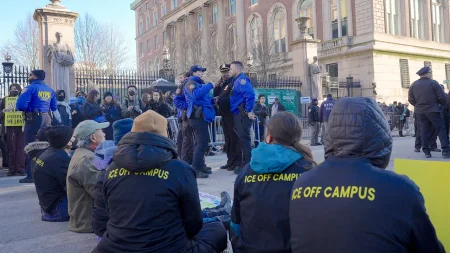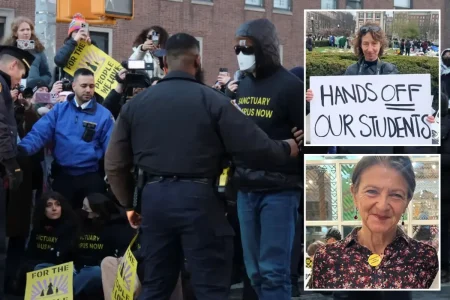East Hampton Considers AI to Combat Illegal Short-Term Rentals
In the picturesque coastal town of East Hampton, a battle is brewing between local officials and property owners over the surge in illegal short-term rentals. Recent data has revealed a startling reality: approximately half of the 2,000 vacation rental listings in this upscale Long Island getaway are operating without proper licenses, prompting town officials to consider innovative approaches to enforcement. Deputy Supervisor Cate Rogers has voiced particular concern about what she describes as “commercial investment in residential districts by investors who only seek to make profit and are not looking at being part of this community at all.” This growing trend of absentee investors purchasing properties solely for short-term rental income has sparked debate about the changing character of this historic beach community, where summer homes have traditionally belonged to families rather than corporate entities.
To address this issue, the town board is exploring several potential solutions, with technology taking center stage in their enforcement strategy. Rogers has recommended purchasing artificial intelligence software specifically designed to track rental properties within town borders, allowing officials to more efficiently identify unlicensed operations. Beyond technological enforcement, the board is also considering economic measures to discourage illegal rentals, including implementing hotel-style taxes on Airbnb-style accommodations or significantly increasing registration fees for all rental properties. Perhaps most controversially, they’re contemplating restrictions that would limit rental permissions exclusively to homeowners who use their East Hampton property as their primary residence – a move that would effectively eliminate the investor-owned rental market but potentially create hardship for longtime seasonal residents.
The current town regulations already impose substantial restrictions on short-term rentals, limiting them to a minimum stay of 14 days and allowing homeowners to rent their properties for these two-week periods only once every six months. These stringent rules have inadvertently fueled a thriving black market on platforms like Airbnb, where weekend stays can command well over a thousand dollars – a temptation too lucrative for many property owners to resist despite the legal risks. The economics are simply too compelling: a single summer weekend rental in East Hampton can sometimes generate as much income as a month-long lease elsewhere, creating a powerful incentive for homeowners to circumvent regulations. This underground rental economy has flourished partly due to limited enforcement resources in the town, a gap that AI monitoring could potentially close.
While town officials focus on curtailing investor-owned properties, many long-term East Hampton residents who rely on rental income to maintain their homes fear being caught in the regulatory crossfire. One such resident, Stephanie, who inherited her grandparents’ 1974 home, explained to The Post that renting part of her house through Airbnb is the only way she can afford to remain in the increasingly expensive community. “Since property taxes and everything else are so expensive, if I don’t Airbnb part of my house, I wouldn’t be able to afford to live here,” she said. Her situation highlights the complex reality facing many year-round residents who have deep roots in East Hampton but struggle with the area’s soaring cost of living. These homeowners don’t see themselves as part of the problem but rather as local residents using rental income as a survival strategy in a community where housing costs have outpaced typical incomes.
Stephanie’s concerns reflect a broader sentiment among established community members who fear that overly aggressive regulations might inadvertently force out the very locals they’re intended to protect. “I’ve seen developers come in and price local people out who have lived here their whole lives—so there should be smart legislation and regulation for a good balance and to preserve affordable housing—but these recommendations are too overbroad,” she added. This perspective underscores the delicate balancing act facing town officials: how to preserve neighborhood character and housing affordability while respecting the property rights and economic needs of existing residents. Many longtime East Hampton families have traditionally relied on summer rental income to offset their annual expenses, a practice that predates the digital platforms that have expanded and commercialized the vacation rental market.
Town officials acknowledge they’re navigating complicated terrain, recognizing that short-term rentals have become deeply integrated into East Hampton’s tourism-based economy and provide essential income for many permanent residents. The challenge lies in distinguishing between local homeowners who rent occasionally to make ends meet and outside investors who purchase multiple properties solely for short-term rental businesses. In neighboring Southampton, officials have already taken decisive action, following East Hampton’s lead by banning short-term rentals entirely and establishing the same two-week minimum stay requirement. This regional approach suggests a growing consensus among East End communities about the need to regulate vacation rentals, though the specific implementation—and whether technology like AI will play a central role in enforcement—remains to be determined. As East Hampton moves forward with potential new regulations, the town faces the difficult task of protecting community character while ensuring that the people who give the town its character can afford to remain there.











